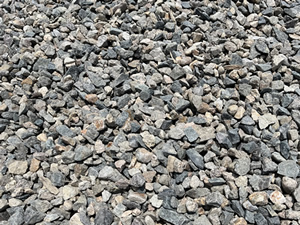As awareness about the harmful effects of chemical pesticides and fertilizers on the environment and human health continues to grow, many homeowners and landscapers are making the switch to organic landscaping practices. By transitioning from chemicals to compost, you can create a healthier, more sustainable outdoor space that benefits both your property and the planet. This guide will provide you with everything you need to know to make the switch to organic landscaping successfully.
Why Transition to Organic Landscaping?
Organic landscaping offers a wide range of benefits for both you and the environment. Here are some of the main reasons why you should consider making the switch:
Benefits for Your Property
- Improves soil health and fertility
- Promotes strong root growth
- Reduces the risk of chemical runoff into water sources
- Creates a more resilient and self-sustaining landscape
Benefits for the Environment
- Protects pollinators and beneficial insects
- Reduces air and water pollution
- Preserves the health of local ecosystems
- Helps combat climate change by sequestering carbon in the soil
Transitioning to Organic Landscaping: A Step-by-Step Guide
Ready to make the switch to organic landscaping? Follow these steps to transition away from chemicals and towards a more sustainable approach:
Evaluate Your Current Practices
- Assess the types of chemicals you are currently using
- Identify areas where synthetic pesticides and fertilizers can be replaced with organic alternatives
- Consider the long-term impact of your current landscaping practices on the environment
Design a Sustainable Landscape Plan
- Choose native plants that are well-suited to your region's climate and soil conditions
- Incorporate a variety of plant species to support biodiversity
- Create habitat for pollinators and other beneficial insects
- Implement water-saving techniques such as rainwater harvesting and drip irrigation
Implement Organic Soil Amendments
- Start composting organic matter such as kitchen scraps, yard waste, and leaves
- Add compost to your soil to improve its structure and fertility
- Consider using natural fertilizers like compost tea or manure
- Avoid synthetic fertilizers that can harm soil organisms and beneficial microbes
Practice Natural Pest and Weed Control
- Encourage natural predators like ladybugs and lacewings to control garden pests
- Use physical barriers such as row covers to protect plants from pests
- Handpick weeds instead of using herbicides
- Mulch your garden beds to suppress weeds and retain moisture
Tips for Maintaining an Organic Landscape
Once you have transitioned to organic landscaping, it is important to maintain your sustainable practices to ensure the long-term health of your outdoor space. Here are some tips to help you keep your organic landscape thriving:
Monitor Soil Health Regularly
- Test your soil annually to check for nutrient deficiencies and pH levels
- Adjust your soil amendments based on the results of soil tests
- Rotate crops to prevent soil depletion and nutrient imbalances
Encourage Biodiversity
- Plant a mix of flowers, herbs, and vegetables to attract a diverse array of pollinators
- Leave some areas of your yard wild to provide habitat for birds, butterflies, and other wildlife
- Avoid monocultures to prevent the spread of pests and diseases
Practice Water Conservation
- Water deeply and infrequently to encourage deep root growth
- Install a rain barrel to collect and store rainwater for irrigation
- Use drip irrigation or a soaker hose to deliver water directly to plant roots
Stay Educated and Engaged
- Attend workshops and seminars on organic gardening and landscaping
- Join a community garden or local environmental group to connect with like-minded individuals
- Share your knowledge and experiences with others to promote sustainable landscaping practices
Conclusion
Transitioning from chemicals to compost is a rewarding journey that can benefit both your property and the planet. By implementing organic landscaping practices, you can create a sustainable outdoor space that is both beautiful and environmentally friendly. Remember to take it one step at a time, educate yourself on organic gardening techniques, and stay committed to maintaining your organic landscape for years to come.

